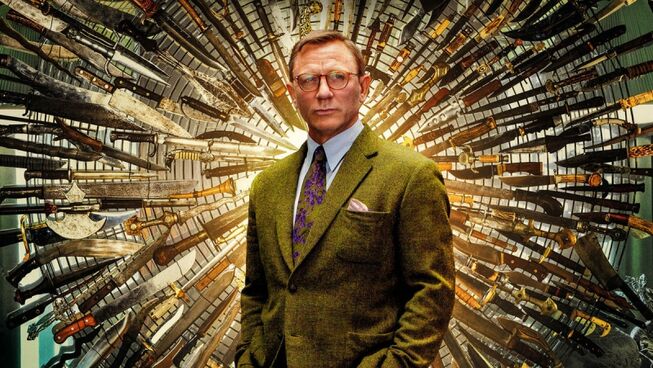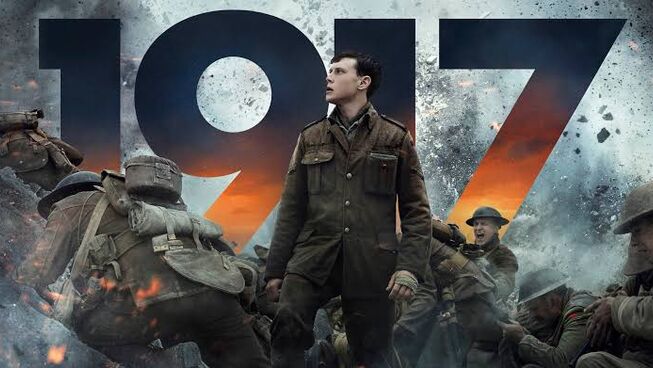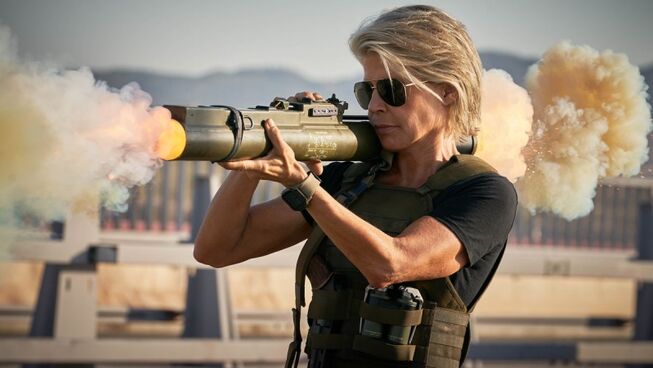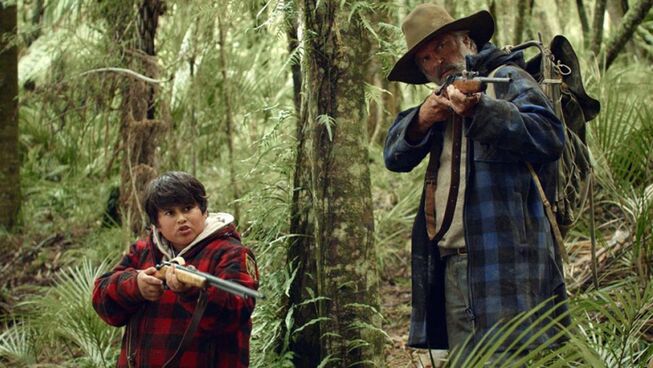3.5 out of 5 stars
Every year since the end of World War II, there has been a multitude of films that depicted different elements of the war. Adolf Hitler continues to be a central figure of history that provides various levels of intriguing commentaries to be portrayed about the man and his evil legend. The notorious leader has even provided material for comedic films that range from Charlie Chaplin’s The Dictator (1940) to Mel Brooks’ The Producers (1967), which have all received differing degrees of acclaim and ridicule. In 2019, Adolf makes a return as the comedic centrepiece of Jojo Rabbit, from the brilliant and twisted mind of director Taika Waititi (Thor: Ragnarok). Not only directing and writing the film, but taking on the titular role of the German leader as a means of getting the screenplay greenlit.
The story focusses on the training and Nazi indoctrination of ten-year-old Johannes "Jojo" Betzler (Roman Griffin Davis) during the later stages of World War II. He is raised by his eccentric and passionate mother, Rosie (Scarlett Johansson), who sends him to a Hitler Youth training camp and encourages him to be a good German. Even though the details are not clear, Jojo’s father is off fighting on the Italian front. This leads the boy to develop an imaginary friend who is a childish and comedic manifestation of Adolf Hitler (Waititi). This relationship inspires the youth to take risks at the training camp that leads to him be injured and incapable of serving in the German army. Jojo does go on to serve in various capacities for the Third Reich, but many days he finds himself at home alone while he waits for his mother to come home each day.
One day at the house, he discovers that his mother is harbouring a teenage Jewish girl in a crawlspace of the family home. Elsa (Thomasin McKenzie) convinces Jojo to keep her whereabouts a secret for the safety of his mother and the boy sees this as an opportunity to find out the truth about the ‘evil’ Jews. This leads him down a path of self-discovery as he begins to question his mother about patriotism to the Nazi cause and laments the absence of his father. He gets advice from his wise-beyond-his-years, best friend Yorki (Archie Yates) and the misguided Hitler Youth Army officer, Captain Klenzendorf (Sam Rockell). Torn between his new education of the Jewish people and his devotion to his fictitious Führer manifestation, the young man must come to terms with all he has learned while the war comes closer to his hometown.
Reminiscent of the child-like viewpoint portrayed in The Book Thief and The Boy in the Striped Pyjamas, this comedic vision of Taika Waititi provides a glimpse into the confusing world of the children of the Third Reich. From the opening credits which use the Beatles music overlaying the crowds that celebrated Hitler’s rise to power, the director manages to depict the mindset of the German people and how they were swept up in the ‘stardom’ of their messianic leader. Then to provide this personal and often humorous journey into the soul of Jojo makes for a poignant story of a boy discovering the realities of life and how to navigate through this disconcerting world.
 Like most comedies, this method of storytelling is used to deliver a darker and harsher message of the human heart masked by lighthearted means. The New Zealand director manages to cut that fine line between humour and dramatic tension with a style that will make audiences laugh while considering the truth of this horrific time in human history.
Like most comedies, this method of storytelling is used to deliver a darker and harsher message of the human heart masked by lighthearted means. The New Zealand director manages to cut that fine line between humour and dramatic tension with a style that will make audiences laugh while considering the truth of this horrific time in human history.
Johansson and Rockwell deliver amazing performances that capture the comedic and sobering elements of the final stages of the war. While Waititi provides some of the best one-liners of the film and proves to be the support his little star needs. It is his young cast that delivers the heart of this film and is allowed to grow-up on screen without becoming cliched in the process. Davis and McKenzie prove that they can carry this film through to the end and manage to capitalise on the stellar supporting cast that surrounds them.
Jojo Rabbit sits in a fascinating place in the cinematic world. The story is a bittersweet expression of the human journey. A mixture of humour, fantasy, realism and relationships that is rarely captured in such a manner in film. Like The Hunt for the Wilderpeople and Thor: Ragnarok, Taika Waititi has managed to make his unique mark on this film and the world. Proving that it is possible to laugh and cry while wrestling with the messiness of this world.
REEL DIALOGUE: What is the value of parents?
 There is nothing quite like the love of a parent. Even in the worst of experiences, the love, support and hug from your father or mother should have a soothing effect on your very existence. Scarlett Johansson’s dialogue with Jojo over dinner is one of the best portrayals of how to share the thoughts of adults with children while expressing her love for her child. Her sacrifices and passion manage to get caught as well as taught in her actions and words in a profound manner in the film.
There is nothing quite like the love of a parent. Even in the worst of experiences, the love, support and hug from your father or mother should have a soothing effect on your very existence. Scarlett Johansson’s dialogue with Jojo over dinner is one of the best portrayals of how to share the thoughts of adults with children while expressing her love for her child. Her sacrifices and passion manage to get caught as well as taught in her actions and words in a profound manner in the film.
The parent/child relationship can come in the form of blood relations, a blended family or through adoption and shows that no price can be put on the importance of parents in the life of a child. Have you told your parents how much they mean to you today?






